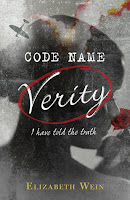By Lisa Tuttle
This has been my year for discovering Elizabeth Hand. I should really say “re-discovering”, because of course I had read some of her work before – Waking the Moon is a favourite of long standing, and I was sufficiently impressed by her shorter fiction to shell out for the signed, limited edition of Bibliomancy when it came out from PS in 2003. I bought copies of Mortal Love (paperback) and Generation Loss (hardcover) when I saw them at the World Fantasy Convention in Saratoga – but in spite of a strong suspicion that I was going to love them both, the sheer number of unread books piled up in my house meant I did not get around to reading them for (gulp) five years.
First, Generation Loss. This falls into the loose category of crime fiction – a genre I probably read more often, and with more enjoyment, than SF/fantasy these days – but it’s an outstanding book however you classify it. As a writer, I was impressed with the author’s ability to create such an unsympathetic, downright unpleasant, main character – honestly, you’d run the other way if you saw her coming in real life – without alienating the reader. As a reader, I was totally gripped and carried away – the atmosphere, the setting, the story, the mystery, the characters all blended into a vivid waking dream.
After that, only another novel by Elizabeth Hand could compete, so I read – very different but also wonderful – Mortal Love. This was a somewhat eerier experience, not only because it is a fantasy, involving magic, fairy tales and art in a tale about the occasional overlapping of our reality with the world of Faerie, but for a more personal reason. I’ve also written a novel about the intersection of these two worlds, and the working out of an ancient tale in modern times -- The Mysteries, first published in 2005. Liz Hand and I may have been dreaming up our different, folklore-inspired plots at the same time – we even quote some of the same sources – and so, in addition to the literary pleasures of this book, I had the slightly spooky thrill of feeling that we must be on the same wave-length.
Then I read “Near Zennor” – which I’m not alone in considering one of the best novellas published last year -- another evocative, mysterious tale about strange experiences, memory, love and magic that made me think I might – almost! Maybe! If I only could-- have written it myself.
The other books which really stood out for me this year are all nonfiction:
The Possessed by Elif Batuman – although I thought it kind of disintegrated a bit towards the end, getting weaker rather than ending with a real punch, this was a wonderfully entertaining, sui generis book combining scholarship (mainly about Russian novels, Russian history, the experience of learning other languages) with personal experience – it’s a sort of travel book/memoir that’s also about books and reading; unlike anything else I can think of, and I loved it.
Strindberg: A Life by Sue Prideaux – A wonderful biography about a strange and fascinating writer. I had the totally wrong idea about August Strindberg, and this lively and scholarly book put me right. He lived in interesting times, as well, and knew a lot of people. Possibly the most interesting and compelling read of the year for me – usually, I pick up biographies and put them down and it can take me a year (or more) to read them all the way through, if I ever do, but this one I read over a few days, like a novel.
A Natural History of Ghosts: 500 Years of Hunting for Proof by Roger Clarke – I ordered this one as soon as I heard it was out; it sounded like the book I had been waiting most of my life to read, and it pretty well lived up to my expectations. I once had an idea of writing a book like this, but Roger Clarke (who grew up in haunted houses, and in 1981 was the youngest person ever to be invited to join the Society for Psychical Research) has done it SO much better than I ever could. He takes an informed and forensic look at some of the “classic” cases of haunting, and makes a lot of intriguing and often unexpected connections. No final answer – he admits he has never seen a ghost – but an excellent survey of the evidence.
Lisa Tuttle is the author of numerous novels and short story collections. She has also published nonfiction and more than a dozen books for younger readers. In 1974 she won the John W. Campbell Award for Best New Writer and, in 1987, the BSFA award in the short fiction category. Aqueduct Press published her novella My Death in 2008 (which is now available as an ebook). Born and raised in Houston, Texas, she has made her home in a remote rural region of Scotland for the last twenty years.



No comments:
Post a Comment